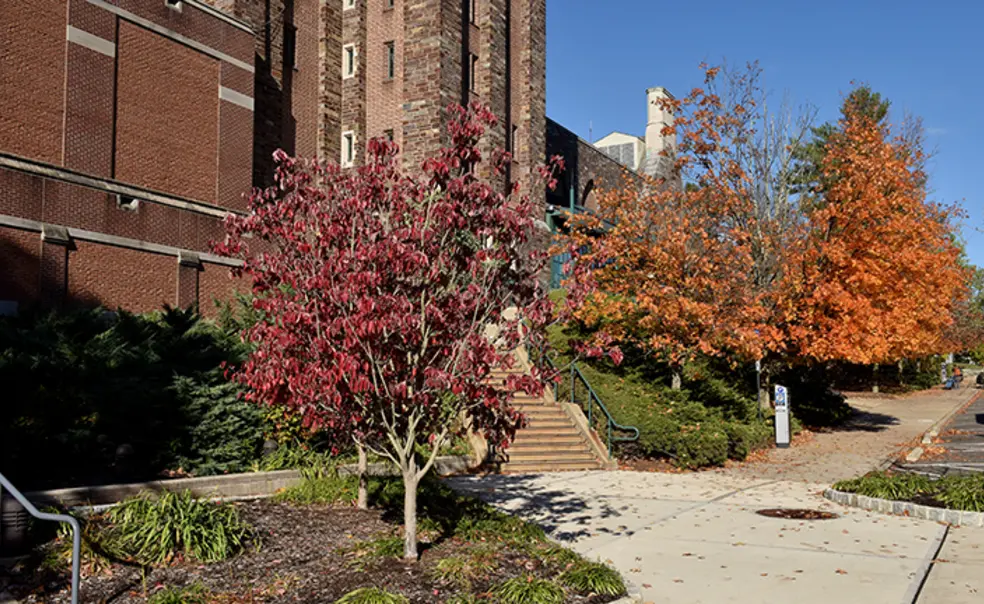In Short: NEA Funding Cuts, Trustee Elections
McCarter Theatre Center was notified in early May that the National Endowment for the Arts (NEA) has rescinded thousands of dollars in grants from the performing arts center as a result of the Trump administration’s cost-cutting initiatives. The news came on the heels of a reduction in state funding, and the combination of cuts totals more than $200,000 this year. McCarter, a nonprofit organization independent of the University, has a $16.5 million operating budget for fiscal year 2025. Martin Miller, McCarter’s executive director, told PAW that the cuts might seem inconsequential in that context, “but when you’re a performing arts organization … your capacity to take risks and grow is always defined by the margins.” The NEA also rescinded a grant to Princeton University Concerts that had been awarded to support its “Healing with Music” series.
Alumni elected three University trustees to four-year terms, beginning July 1: James Lee ’86 of Los Angeles, an artist and the president of DC Comics; Anthony D. So *86 of Baltimore, a professor at the Johns Hopkins Bloomberg School of Public Health; and Robert Long ’79 of Peachtree Corners, Georgia, a former executive at Kimberly-Clark, Coca-Cola, and Procter & Gamble. Gil Joseph ’25, a sociology major from Port-au-Prince, Haiti, was elected Young Alumni Trustee in a vote by the classes of ’23, ’24, ’25, and ’26.
The board elected two charter trustees to serve eight-year terms: Marco Tablada ’93 of New York City, co-founder and managing partner of Alua Capital Management; and Melissa Wu ’99 of Boston, chief executive officer of the nonprofit Education Pioneers. The board also elected two term trustees to serve four-year terms: Andrew Florance ’86 of Washington, D.C., founder and CEO of CoStar Group; and Anthony Lee ’92 of Burlingame, California, managing director of Altos Ventures.
First-year Princeton graduate student Albert Qin and incoming graduate student April Qiu Cheng were among 19 recipients of this year’s Hertz Fellowships in applied science, mathematics, and engineering. Fellows receive a stipend and full tuition support valued at more than $250,000. Qin is based in the physics department; Cheng is joining the astrophysics department in the fall.
Politics majors Osamede Ogbomo ’25 and Matthew Wilson ’24 were awarded the Barry Scholarship for graduate study at the University of Oxford. Both Ogbomo and Wilson plan to pursue master’s degrees in political theory.
On May 22, the Institute of Electrical and Electronics Engineers dedicated a plaque at Princeton’s Friend Center commemorating the first demonstration of the Fast Fourier Transform, an algorithm now used in major applications such as image and video compression, real-time internet streaming video, medical imaging, robots, and self-driving technology. Developed through ideas contributed by Princeton professor John Tukey *39 and collaborators from IBM, a computer program implementing an efficient algorithm for Fourier analysis was first demonstrated at IBM Research in 1964. The technique calculated Fourier Transforms at least two orders of magnitude faster than had been demonstrated previously.
Liat Krawczyk, a former Department of Commerce strategist, began her work as inaugural executive director of the NJ AI Hub, of which Princeton is a founding member, on June 16, according to a University announcement. Krawczyk “helped establish a $300 million workforce strategy” as senior adviser for the CHIPS for America strategy team, according to the University, following the 2022 CHIPS and Science Act, which aimed to advance research and manufacturing of semiconductors. Krawczyk also has economic development experience in the cybersecurity sector and co-founded The Jeneba Project, a nonprofit that educates girls in Sierra Leone.
The NJ AI Hub celebrated its ribbon-cutting in March. “I think it’s really important to proactively build toward what we want: to power the workforce for the AI era, drive transformative AI innovation for public benefit, and shape the future of responsible AI governance and innovation,” Krawczyk said in the announcement.












No responses yet